Fears For Fate Of Iran’s Missing Sunni Religious Teachers
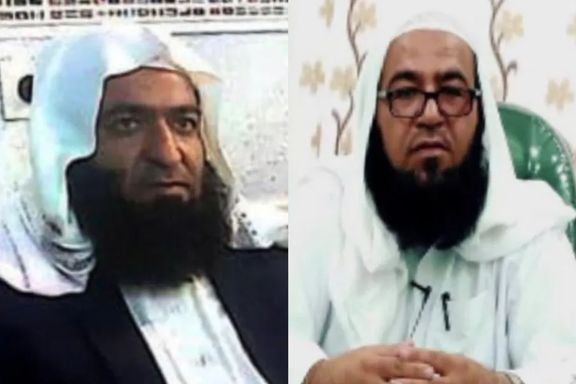
Fears are growing for two teachers and activists in Iran’s Sistan and Baluchistan province who have not been seen for 40 days.

Fears are growing for two teachers and activists in Iran’s Sistan and Baluchistan province who have not been seen for 40 days.
Brothers Reza and Abdulrauf Rakhshani, prominent teachers at a Sunni religious school in Zahedan, went missing after what is believed to have been a regime backed forced disappearance.
According to reports from local publication Halvash, the two brothers were arrested by the security forces in Zahedan on February 15 and despite the follow-up of their family, the judicial and security authorities have not yet commented on their condition.
The report claims that the arrest of the two brothers is aimed at "putting more pressure on Mowlavi Abdolhamid, the Sunni Imam of Makki Mosque of Zahedan”.
Civil activists in Sistan and Baluchistan, home to a Baluch majority, have previously reported that during the protests of the last six months a large number of citizens, including children under the age of 18, have been arrested with no charge against them.
There is no accurate information about the situation of many of them due to the disruption of the internet in many areas of the southeastern province.
At least 69 Afghan students who were studying at a religious school in Zahedan, were arrested by the security forces and transferred to a camp on February 13 after having been forced to confess to participating in Zahedan’s weekly protests.
The Sunni city of Zahedan in the southeastern Sistan-Baluchestan province has been witnessing protests against repressions and discriminations in the province following mass Friday prayers during the past 25 weeks.
The Sunni Baluch population have taken to the streets in Zahedan every Friday after prayers since September 30 when government forces cracked down on protesters and killed tens of protesters, known as Bloody Friday. Protests began after the death of Mahsa Amini in ‘hijab police’ custody in mid-September.
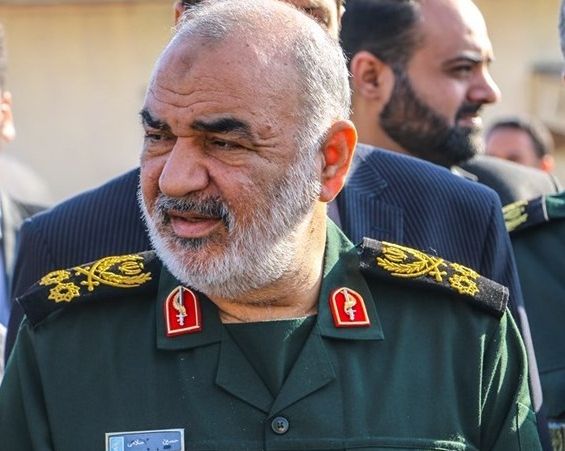
A group of Iranian-French lawyers are preparing to file a complaint against the Commander of Iran's Revolutionary Guard Corps, Hossein Salami, in France.
Le Monde reported on Monday that the lawyers, led by Chirinne Ardakani, hope to bring to trial those responsible for crimes committed against Iranian protesters.
For the past six months, the 31-year-old Franco-Iranian Ardakani has been actively participating in the uprising of the Iranian people for their freedom, the idea of forming the group becoming apparent after the murder of Mahsa Amini at the hands of morality police.
Known as the Collectif Iran Justice, a "legal task force" consisting of around 15 lawyers, jurists, and translators, the group is preparing to file a complaint with the Paris prosecutor's office against Hossein Salami.
The head of the Revolutionary Guards and author of death threats against the pro-democracy diaspora, which the legal team claims amounts to an unofficial fatwa, should not go unpunished.
Ardakani has so far managed to win the backing of 100 members of parliament in France to support the protesters who have been sentenced to death in Iran.
At the end of March, she is going to give a speech at the United Nations Human Rights Council about the suppression of protesters by the Islamic Republic.
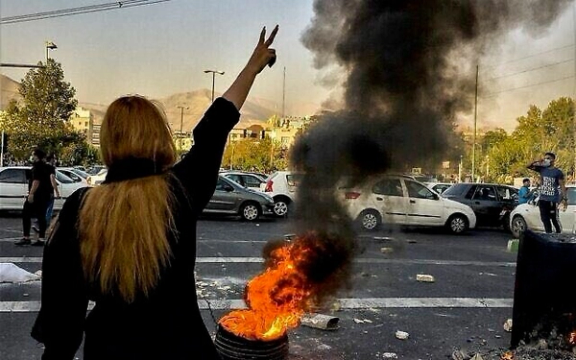
Some observers in Iran say that the society has been "radicalized" because of recent protests which were the product of the authoritarian political system.
In an interview with the reformist daily Shargh, sociologist Maghsud Farasatkhah said that the government needs to find answers to a set of urgent national problems including water shortage, capital flight, emigration of human resources, increase in poverty, diminishing economic stability, gender, ethnic and social inequality, and so on.
"But currently, the government has reduced politics to the unilateral omission of 'others' to reinforce its political power," he said, adding that ignoring the need for dialogue has led all politics into an impasse.
Farasatkhah added that a ruling class should come to power by trying to satisfy the aspirations of the people, but this is ignored in Iran, as all decisions are made by an elite whose relations with the rest of the society can be defined as "patriarchal."
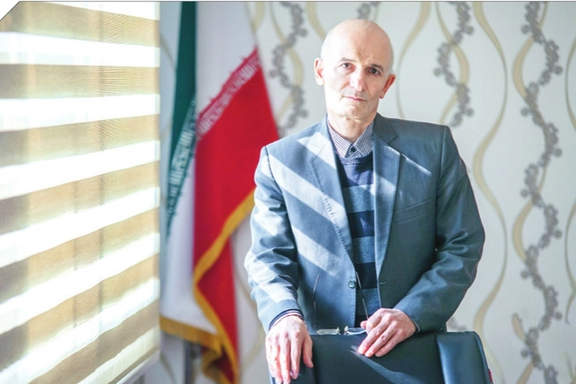
By the word "elite," Farasatkhah means a group of non-elected politicians loyal to Supreme Leader Ali Khamenei, or those who have been elected to positions through a system of biased candidate vetting that merely serves the leader's interests.
According to Farasatkhah, this elite operates via non-transparent and non-accountable institutions in which there are no checks and balances. This will inevitably bring about a conflict between rulers and society. Examples of this are disagreements between the government and the people, such as compulsory hijab. What is prohibited by the government is permissible in the eyes of the nation. The same duality and conflict also exist in many other areas such as the unrestricted access to the Internet, sports, art, education, and so on.
The unrepresentative elite tries to force its views on the people and deny them personal and political freedoms.
In such a situation, when the people are not allowed to take part in politics, they turn into masses, and masses sometimes act as populist politicians and propagandists want them to act. Farasatkhah said that the society currently acts like a mass which is easily overwhelmed by events in Iran and the world. Any incident can potentially upturn the situation, and this is a cause for concern. "I am worried about the future and stability of the society as eventually the people will be the losers in the chain of events.
Farasatkhah said that the way out of this situation is turn the masses back into a society in which vocational, civil, local, and public institutions could be activated to empower the society, make it rational and rob the populists of their leverage.
However, many dissidents and critics might label Farasatkha’s recommendations as wishful thinking within the ideology and structure of the current regime. Nice ideas have been around in Iran for decades, but the regime has prevented all reforms.
In another interview in the same issue of Shargh, Expediency Council member and a long-time regime insider, Majid Ansari said he can see signs that a part of the government has noticed the threats and understood the need for a review of current policies. Ansari is concerned about the threats but is willing to offer his way out of the problem.
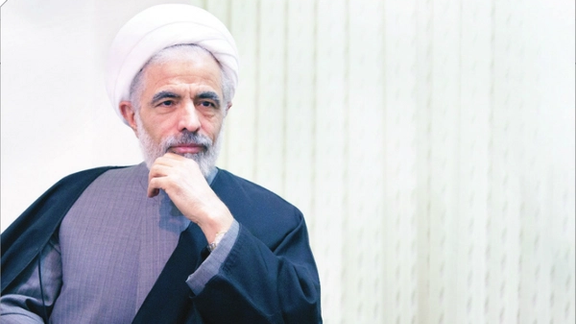
Ansari, an aide to the de facto leader of ‘reformists’ in Iran, former President Mohammad Khatami, said that current protests has put regime politicians and political groups in all factions to test. He acknowledged the people's disillusionment about the factions but still believes that there are still ways to restore people's trust in political groups and even the government.
Iranian protesters have been saying that there is no big difference between the hardliner and reformist factions of the regime and they do not believe in that dichotomy any longer. Regime change, they say, is the only way to resolve the many crises Iran faces.
Ansari also acknowledged that the all-conservative government in Iran has led to "a relative political impasse," but he believes that admitting the mistakes made during the past years and using collective wisdom to make things right will put the nation back on the right track.
However, he did not say why Iran was not able to get on the right track in 44 years since the establishment of the Islamic Republic.
Ansari's solution is mainly based on holding free and fair elections, but doing so requires changes to the constitution or the combination of institutions linked to Khamenei, including the Guardian Council, and it is not clear who can bring Khamenei to terms with the idea of change as in his latest speech on March 21, he ruled out any change in the constitution and attributed the idea of change to "the enemies."
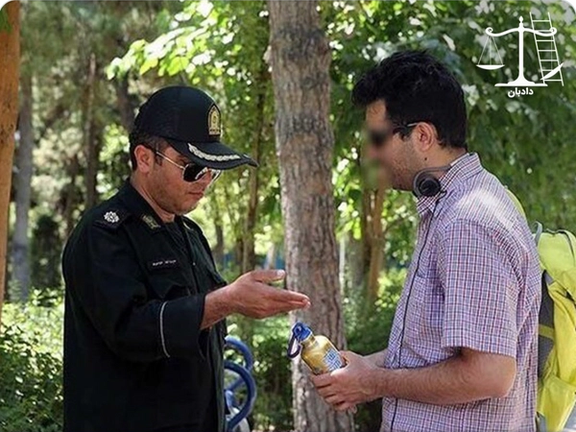
Police have shut down dozens of businesses in Iran for disrespecting fasting rules and issued warnings to many others amid the Iranian New Year (Nowruz) holidays.
A police official in Khuzestan Province said Saturday that fifty-five businesses, were shut down in Ahvaz, the capital of the province, for breaking the rules of fasting.
Colonel Mohammad-Hossein Mohammadvand said 229 businesses were inspected, 55 were shut down and 14 others received warnings that they will be shut down if they do not abide by the rules. Inspection will continue until the end of Ramadhan, he said. Similar inspections are carried out in other cities across the country.
During the fasting month which started March 23, restaurants, cafes and coffee shops, tea houses, ice-cream and juice bars have to remain closed until fasting ends around sunset. In the capital Tehran, this falls at around 18:35 at this time of year.
The rules apply to and are enforced in all public places including gyms, schools, universities and factories where cafeterias are closed throughout the month. Even eating inside cars is not allowed.
The fasting month of Ramadan in the Islamic lunar calendar has coincided with Nowrouz (Nowruz) and its holidays. Authorities have been urging people to report if they witness anyone violates fasting in public or hijab rules, by sending text messages to designated numbers or online.
A government-sponsored billboard in the city of Shiraz urges visitors to the city to report hijab, fasting disrespect to the authorities.
Those taking trips during Ramadan are not required to fast if they travel farther than 45km from home and intend to return at least ten days later, according to Sharia. Restaurants situated inside hotels, on transit roads or airports and train stations can apply for special permits to cater to the needs of travelers but they must completely cover their windows so that patrons eating inside cannot be seen from the outside.
“Serving kebabs and other grilled food is prohibited before iftar,” regulations announced by Tehran police Wednesday said while stressing that the number of permits issued in any given neighborhood or city should be low enough not to blur “the difference between this month and ordinary months”.
The religious establishment and its supporters say people should not eat in public during the fasting month “out of respect for those who fast” but many among the non-fasting citizens believe this is unfair.
“You are fasting, Okay, but why should I not be able to eat?” a tweeter protested. “The [real] reason for keeping restaurants closed is not to allow the huge number of those who don’t fast to be revealed.”
Another tweet protested that food businesses must suffer so that the faith of the religious is not threatened with temptation to eat. “You morons, you are fasting so that you feel and understand what it means [not to be able to eat] to the poor!”
Shiite clerics have even coined a term for the acts of eating, drinking, or smoking in public during the fasting hours, which could very loosely be translated into “showing off in public that one is not fasting”. This ‘crime’ is punishable by ten to sixty days of prison or up to 74 lashes according to article 638 of Iran's Islamic Penal Code.
There are similar rules and cash fines and prison terms for eating in public during Ramadan in most Islamic countries including Qatar, Iraq, Jordan, Saudi Arabia, and the United Arab Emirates.
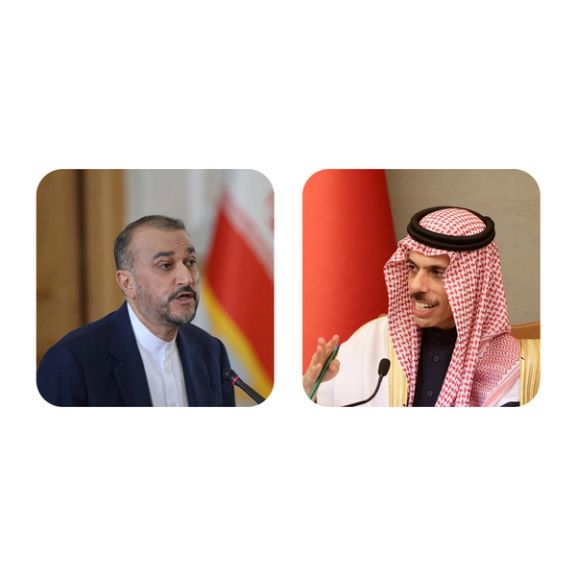
Iranian and Saudi foreign ministers have agreed to meet during the month of Ramadhan to hold talks over restoring diplomatic ties under a deal reached in March.
Saudi Foreign Minister Prince Faisal bin Farhan Al Saud and his Iranian counterpart, Hossein Amir-Abdollahian spoke by phone and agreed to the meeting, the Saudi state news agency SPA said on Monday. It was their second phone conversation in a few days, SPA said.
"During the call, a number of common issues were discussed in light of the tripartite agreement that was signed in the People's Republic of China. The two ministers also agreed to hold a bilateral meeting between them during the ongoing month of Ramadan," SPA said.
Iran’s government news agency IRNA briefly confirmed the phone call and said the two ministers discussed their upcoming meeting during Ramadhan, which is in its first week. They also discussed “the constructive path of relations between the two countries,” IRNA said.
Tehran and Riyadh announced a Chinese-brokered deal March 10 to restore ties after seven years. The deal was seen as a major development in the Persian Gulf region and the wider Middle East, especially with China playing the role of mediator.
The deal also seems to be an agreement going farther than just restoring diplomatic relations, with Tehran expected to reduce its military assistance to Houthi forces in Yemen and help the peace process in the war-thorn country.
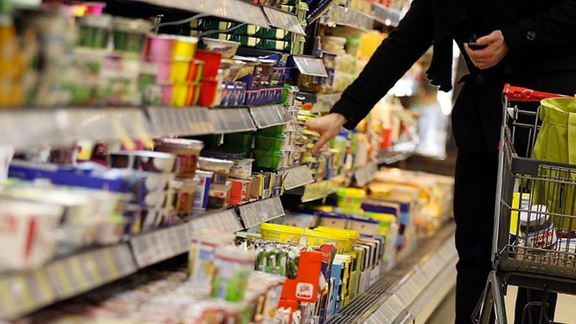
The Central Bank of Iran announced Sunday the annual inflation rate stands at 46.5 percent but did not mention the point-to-point inflation of the last month of the Iranian year.
Although the official inflation rate announced by the authorities is usually less than what it seems in the market, even a 46.5-percent inflation is among the highest in Iran in more than 30 years.
The bank did not disclose the point-to-point inflation for the last Iranian calendar month, which ended on March 21, but it provided the price index of the month, from which the inflation can be extracted. The price index for the month was 794.3, which means a 64-percent point-to-point inflation rate compared to the corresponding period of the previous year at 484.6. It is the second time Iran recorded such a figure since World War II.
The latest CBI report also lacks the price index changes of different groups of goods and services, unlike the usual procedure. Moreover, the Statistical Center of Iran (SCI) has not published its inflation report for the past month. SCI has been the only government entity regularly announcing the inflation rate in the past four years.
SCI said on Sunday that the reason behind the delay is the process of changing the “base year” from the year 1395 to 1400, which ended on March 20, 2022. A base year is used for comparison in the measure of a business activity or economic or financial index. It can also describe the starting point from a point of growth or a baseline for calculating financial transactions.
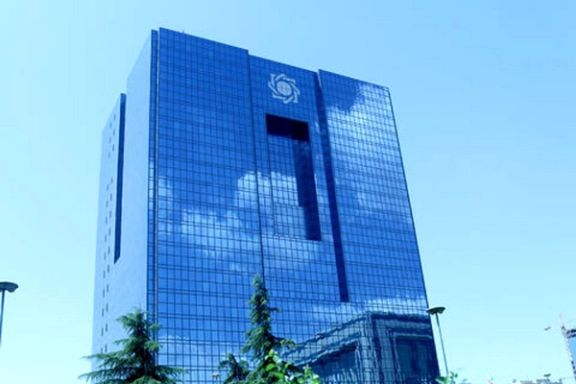
"Due to the changes in the content of the market basket over time, according to international recommendations, it is necessary to change the base year at certain time intervals,” the Statistical Center of Iran said.
Considering the devaluation of Iran’s currency rial from 260,000 against one dollar to about 500,000 this month, the inflation rate is expected to hit new highs in coming months.
The inflation rate factors in numerous commodities and services but the one most important for Iranians is increasing food prices, with some categories doubling or tripling in the past 12 months. Official figures show there was a sharp increase in food prices and most items witnessed a more-than 50 price inflation.
The Islamic Republic has been struggling with high inflation since 2019, but the raging inflation in the past Iranian year which ends on March 20, was seriously different from previous years. Last May, the government eliminated an annual food import subsidy of at least $10 billion, which immediately led to steep price increases.
This was followed by a fall in the value of the national currency, making imports more expensive for the population. The government called its decision to scrap the food subsidy “economic surgery,” but it had no other plans to control prices. Immediately following the announcement, food prices jumped, with some items doubling or tripling in a matter of hours. Pasta is 137 percent more expensive than 12 months ago, while meat prices went up by 76 percent and milk by 80 percent. According to SCI, in some months the inflation rate for food and beverages hit 87%.
In his New Year speech on March 21, Supreme Leader Ali Khamenei dubbed the new year as “the year of bringing inflation under control”, a promise also repeated by President Ebrahim Raisi, but reminiscent of similar slogans in previous years.